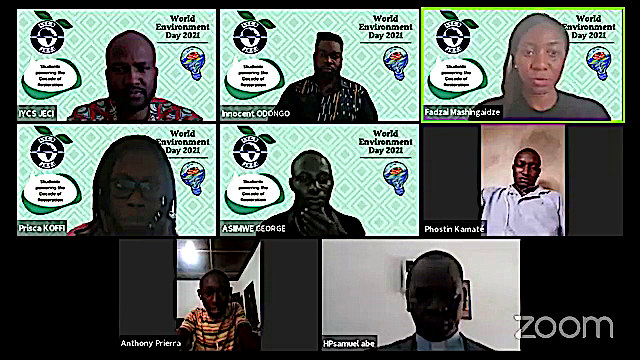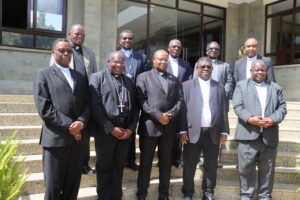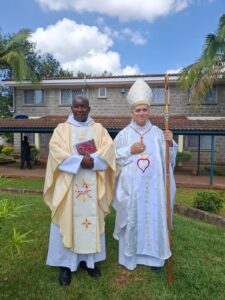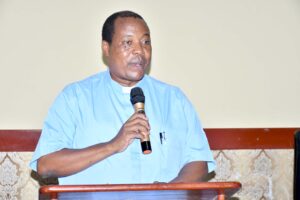KENYA: Panelists Encourage Engagement of African Youths in Eco-entrepreneurship

IYCS- World Enviroment Day Webinar
Sr. Jecinter Antoinette Okoth, FSSA
At commemoration of the 47th World Environment Day Saturday, June 5, panelists from across the African continent have encouraged the youth to get involved in eco-entrepreneurship to solve ecosystem challenges through sustainable business models.
Sharing during the webinar session convened by the International Young Catholic Students-Africa (IYCS), one of the panelists Mr. Aaron Fenu reminded the youth that “it is time to move from regional dialogues, research, advocacy, policy development and begin to act and respond to the climate change challenges.”
The Ghanaian policy analyst informed the African youth that acting as young ecopreneurs whose business efforts are not only driven by profit, but also by a concern for the environment, will encourage other businesses to be ecologically proactive.
According to Mr. Fenu, climate crisis has greatly affected Africa leading to “change in rainfall patterns and this has affected agriculture and reduced food security; fish resources in large lakes have decreased due to rising temperatures and overfishing and the change has also led to rising sea levels affecting low-lying coastal areas.”
Sharing under the topic “Generation Restoration- Ecopreneurship as Sustainable Model to Climate Crisis,” Mr. Fenu highlighted the significance of restoring ecosystem saying, “the initiative helps in protecting the planet and attempts to reverse or slow down the damages from human activity.”
He added, “Ecopreneurship leads to intra and inter-generational equity with the intent to give an equal opportunity to everybody to have the same quality of life as it encourages social justice.”
By being involved in Ecopreneurship the panelist told the online participants, “it contributes to more and better environmentally friendly economic activities.”
The Webinar which also marked launch of United Nations (UN) Decade on Ecosystem Restoration with the aim of restoring the planet and ensuring one health for people and nature, brought together young people from various countries within Africa including Kenya, Uganda, Tanzania, Gambia, Ivory Coast, Nigeria, Namibia, Zimbabwe, Mali, Senegal and Ghana.
Speaking during the same online session on the role of youths and how they can contribute meaningfully in the decade of restoration, Mr. Damilola Hamid Balogun told the young people, “As we have a decade of restoration, so we also have a decade of action which calls for global cooperation.”
He highlighted that the 10-year project should also help accomplish the Sustainable Development Goals (SDG’s) related to environment that were set up by the United Nations General Assembly as “blueprint to achieve a better and more sustainable future for all.”
The Nigerian youth who is the co-founder and Chief Executive Officer of the Youth Sustainability Development Network, emphasized that youths occupy about 50% of the world’s population, hence they have an upper hand in restoring the environment.
“We are not too young to take action,” Mr. Balogun advised about 50 young people who were attending the online session and continued, “The future of our continent lies on the youths and it is our role to ensure that our dear continent is sustained.”
According to Mr. Balogun the youth need to act on advocacy and engage in environmental sustainability discussions to understand more the need for ecosystem restoration. Additionally, “We need to volunteer for grass-root initiatives and team up with like-minded peers to effect change on the environment.”
The Webinar whose theme was “Students Powering the Decade of Restoration,” moderated by Ms. Fadzai Mashigaidze also focused on elevating the voice of young people to protect the future using the digital space for climate action and emphasized other activities the youths can get involved in for environmental conservation.


